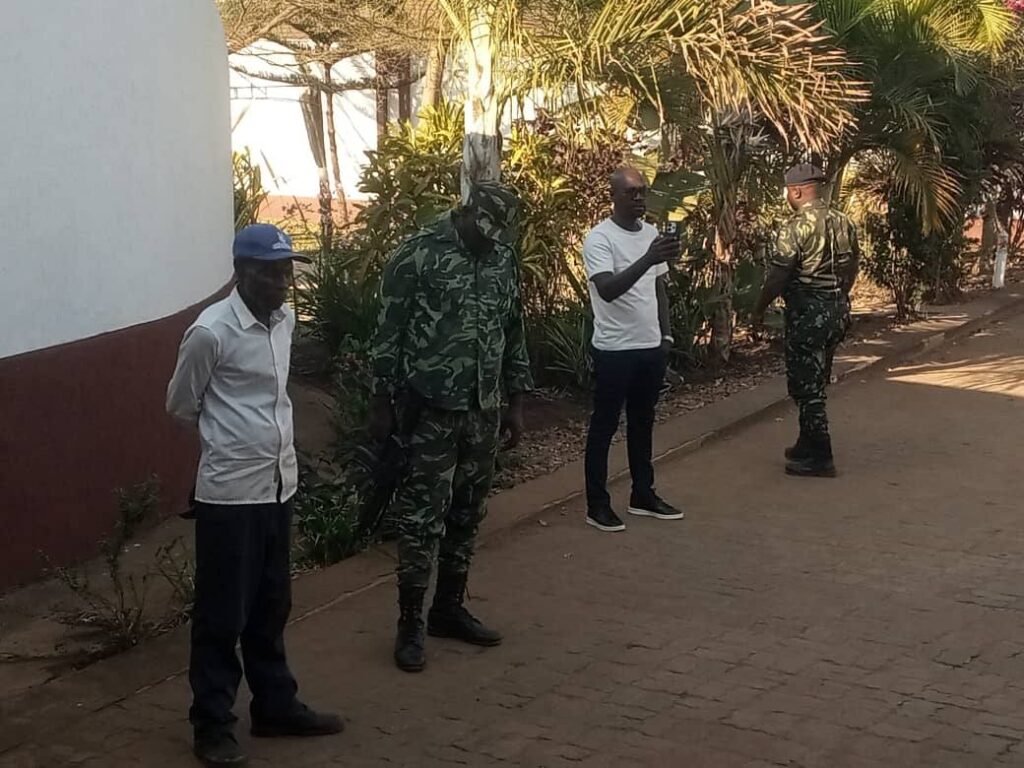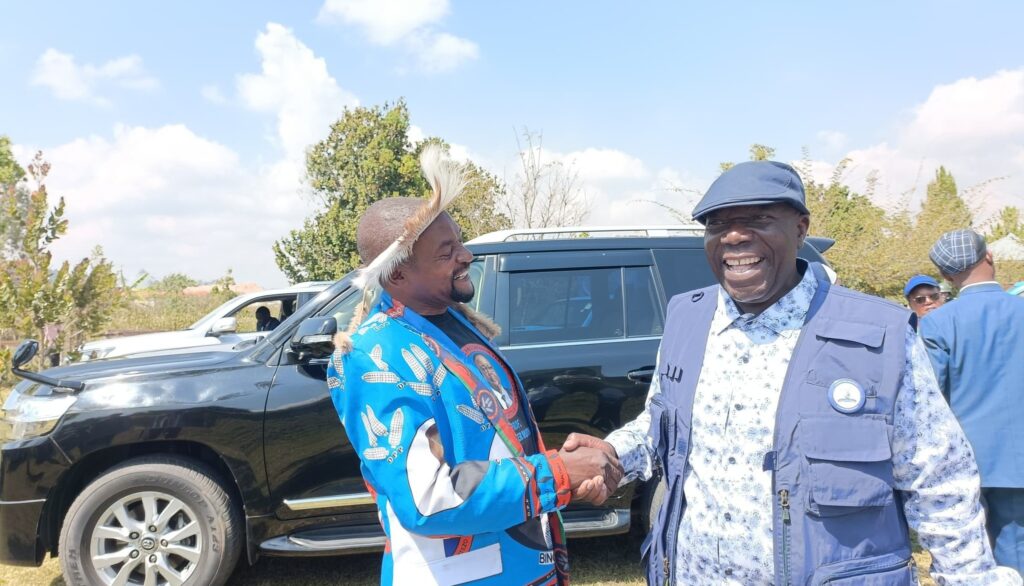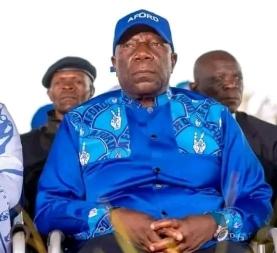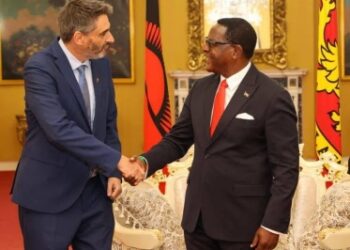When news broke on Tuesday that Malawi Revenue Authority (MRA) officers, backed by armed police, had descended on the Area 9 residence of Alliance for Democracy (AFORD) president Enock Chihana, the shockwaves rippled far beyond Lilongwe.
What unfolded was more than a tax compliance case; it was an indictment of the credibility of one of Malawi’s self-styled reformist politicians.
The MRA probe centers on AFORD-branded campaign materials, T-shirts and other items, imported through Dedza Border Post, allegedly under-declared to evade customs duty.
Chihana, who was quick to cry foul and brand the operation as “political,” maintains the goods were cleared by MRA officers a week earlier.
But his protests, instead of inspiring sympathy, have ignited uncomfortable questions about his fitness to hold public office, and, more importantly, about the company he now keeps in Malawi’s political landscape.
Enock Chihana, son of AFORD founder Chakufwa Chihana, has often spoken of his intent to restore AFORD’s relevance and reposition himself as a national leader. Only weeks ago, he told Malawians he could “fix the country in 100 days” if given the presidency.
But as Tuesday’s raid made clear, the problem is not about how fast one can fix the country. It is about whether the person making such bold claims has the moral capital, integrity, and financial discipline to be trusted with the nation’s coffers.

The optics of MRA officers seizing documents and threatening to confiscate electronic devices from a presidential aspirant’s home paint a damaging picture. Leadership is not about grand promises or nostalgia for one’s parent’s political legacy. It is about credibility, accountability, and trust.
If Chihana cannot ensure that his party pays the correct tax on imported campaign materials, why should Malawians believe he would safeguard billions of kwacha in public revenue once in office?
The scandal also casts Chihana’s recent alliance with the Democratic Progressive Party (DPP) in a troubling light.
AFORD under Chihana has been cozying up to the DPP, positioning itself as part of a so-called “Northern Alliance.” But Tuesday’s revelations make that partnership look less like a political strategy and more like a convergence of convenience among elites with questionable records.
For years, the DPP has been synonymous with corruption, abuse of state resources, and impunity. From the infamous Midnight Six saga to the plunder of billions, the party’s history is littered with scandals. Most recently, senior DPP figures such as Shadric Namalomba and Noel Masangwi have been arrested by the Anti-Corruption Bureau (ACB) over graft-related charges.
Now enters Enock Chihana, a man who positions himself as a reformist but whose own house is under investigation for tax fraud. His alliance with the DPP suddenly makes sense, not as a political calculation for regional balance, but as a natural attraction among politicians who operate on the fringes of legality.
It is no surprise, then, that his public defense sounded eerily similar to the DPP playbook.

The Chihana episode also reopens an uncomfortable national debate. Why does Malawi repeatedly entrust individuals with dubious financial or ethical records with the responsibility of leadership?
When the late Chakufwa Chihana founded AFORD, he did so on the ideals of democracy, transparency, and accountability. His fight helped dismantle the one-party rule. Fast forward to 2025, and his son is in the headlines not for championing democracy, but for alleged tax dodging on imported political regalia.
This is more than irony, it is a betrayal.
For decades, Malawians have watched politicians who evade taxes, steal public money, or engage in shady business practices rise to positions of influence. Instead of facing permanent exclusion from leadership, such figures often find refuge in political alliances, riding on money and manipulation rather than values.
The result is predictable: public trust in politics collapses, state institutions are weakened, and the vicious cycle of corruption continues.
To its credit, the MRA acted decisively. But the real test will be whether this investigation leads to genuine accountability or whether it becomes another footnote in Malawi’s long history of selective justice.
Too often, politicians caught in the dragnet of law enforcement survive through political bargaining. Some switch parties, some strike deals, others cry victim until the scandal fades. Chihana’s protestations of “political motives” are straight out of this handbook.
Yet Malawians deserve better. Tax evasion is not a trivial issue. Every kwacha lost through fraud is a kwacha stolen from hospitals, schools, and roads. For a politician to be implicated in such acts while promising to fix Malawi in “100 days” is an insult to the intelligence of voters.
Malawians Must Ask the Hard Question
The question before Malawians, then, is stark: Why should someone like Enock Chihana be entrusted with national leadership?
This is not about political persecution. It is about standards. It is about recognizing that if leaders cannot demonstrate basic compliance with tax laws, they cannot be trusted with the far greater responsibility of managing national resources.
Malawians should resist the temptation to normalize corruption and financial misconduct in politics. To do so is to accept perpetual poverty, poor services, and failed governance.
The Chihana scandal should be a turning point. It must push Malawians to demand clean politics and reject leaders whose names are synonymous with fraud, tax evasion, or corruption.







